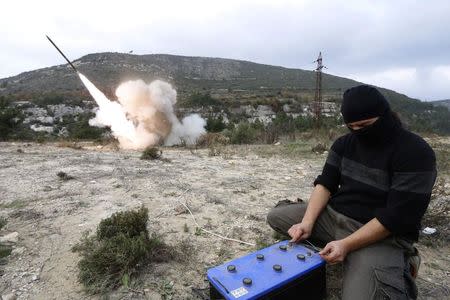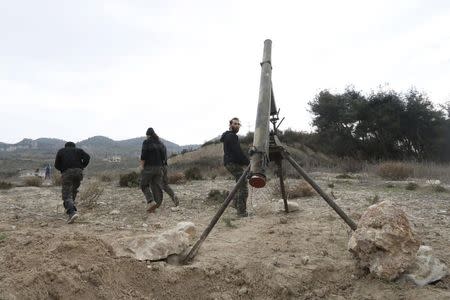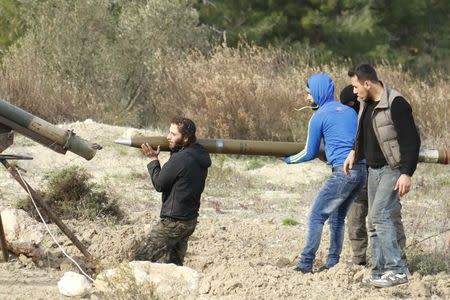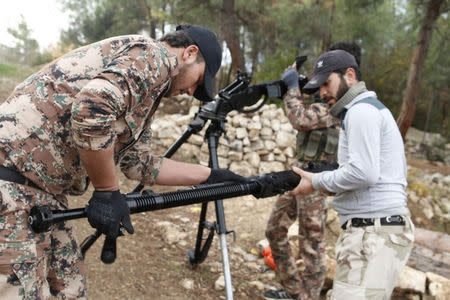U.S. training of Syrian rebels still months away: coalition chief
COPENHAGEN (Reuters) - Western plans to train and equip non-jihadi rebels in Syria will not start until at least late February, a leading opposition figure said on Friday, depriving them of support they need to counter both rival insurgents and Syrian government forces. The relatively moderate rebels loosely grouped under the "Free Syrian Army" label are struggling to hold their ground against much more militant groups such as Islamic State and the al Qaeda-affiliated Nusra Front and against government forces. A U.S.-led coalition is bombing Islamic State, which has seized swathes of territory in Syria and Iraq. The West is also opposed to President Bashar al-Assad, though he has defied their demands to quit since Syria's civil war erupted in 2011. Hadi al-Bahra, head of the Turkey-based Syrian opposition National Coalition, said the United States and its allies needed to find ways of increasing help to the moderate rebels. "The issue is that the developing policies and procedures of putting this program into operation take a very long time," he said after meeting Denmark's foreign minister in Copenhagen. "It is expected to start by the end of February or end of March, which is a very long time to leave the Free Syrian Army at (its) current level of assistance". Syrian rebels say vetted groups have already received a small amount of U.S. military support through a CIA-run program. The training program is at the core of U.S. President Barack Obama's strategy in Syria, a multi-year plan to field local forces to halt and eventually roll back Islamic State fighters, while keeping American troops off the battlefield. Bahra, whose group is widely seen as having little influence on the ground in Syria, said the United States -- now focused on curbing Islamic State -- had "forgotten" the fight against Assad and was not doing enough to address what he called the "cause of terrorism and extremism in the area". He said he was seeking Denmark's support to seek greater help from the World Food Programme, a U.N. agency which said this week it was cutting aid to 1.7 million Syrian refugees in the Middle East due to a lack of funds. "This amounts to an execution order for killing 1.7 million people by famine, especially during this harsh winter time." (Reporting by Teis Jensen; Writing by Alexander Dziadosz in Beirut; Editing by Gareth Jones)




